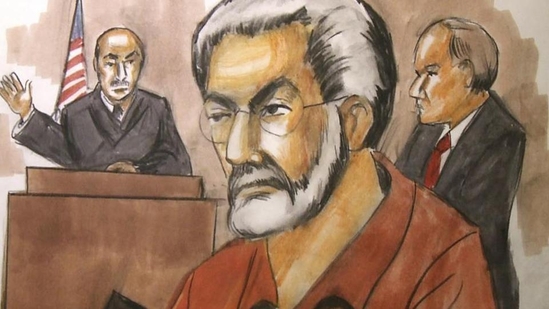Tahawwur Hussain Rana, the Pakistani-origin Canadian national accused of involvement in the 26/11 Mumbai terror attacks, is no longer in the custody of the US Bureau of Prisons (BOP), even as his extradition to India appears imminent.
According to the BOP’s official inmate locator, Rana’s status as of April 8, 2025, is marked as “Not in BOP Custody”. A senior official from the agency confirmed the update, stating that although Rana is not in their custody, he may still be held by another law enforcement or correctional authority.
Rana, 64, was arrested in the United States less than a year after the 2008 attacks and sentenced to 14 years in prison for a separate plot to attack a Danish newspaper. However, Indian authorities have long sought his extradition for his alleged role in helping David Coleman Headley, his childhood friend and a co-conspirator in the Mumbai terror attacks.
Government sources confirmed that a multi-agency Indian team is currently in the US to complete all legal and administrative formalities, raising expectations that Rana could be handed over to Indian authorities very soon. This development follows the US Supreme Court’s recent decision to deny his final appeal, bringing him closer to facing justice in India.
Rana had submitted an emergency application to block his extradition, citing medical conditions and the risk of torture due to his Pakistani origin and Muslim identity. He suffers from serious health issues including chronic kidney disease, Parkinson’s, bladder cancer, and multiple heart attacks. His appeal claimed that extraditing him would essentially be a death sentence.
Despite these arguments, both Justice Elena Kagan and Chief Justice John Roberts denied his requests, clearing the path for his surrender under the Indo-US Extradition Treaty. The US State Department had already authorized his extradition on February 11, 2025, one day before Prime Minister Narendra Modi’s visit to Washington.
During a joint press conference with US President Donald Trump, the latter described Rana as “very evil” and affirmed that he would be extradited to India “to face justice.” The leaders also reiterated their joint commitment to eliminating terrorism and holding the perpetrators of the 26/11 attacks accountable.
On November 26, 2008, ten Pakistani terrorists carried out a brutal assault in Mumbai, killing 166 people and injuring hundreds. The attacks, which targeted iconic locations including the Taj Mahal Palace Hotel and Chhatrapati Shivaji Maharaj Terminus, remain one of the deadliest terror strikes in India’s history.
With the final legal hurdles now removed, Rana’s extradition marks a significant milestone in India’s long-standing effort to bring all conspirators of the 26/11 attacks to justice.








 India
India












